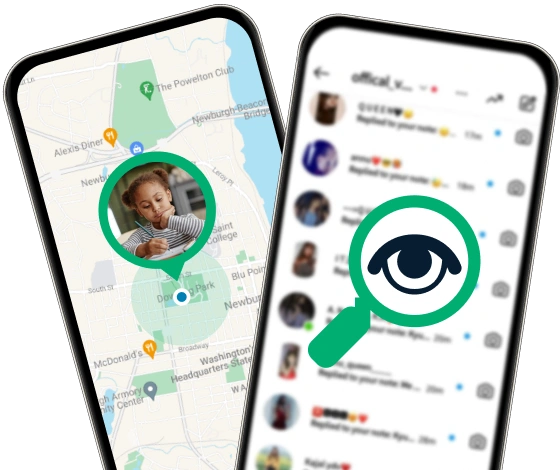Slack has become a key communication tool for businesses. But with convenience comes concern: can anyone read my Slack messages? It’s a question that worries many employees as they navigate the balance between privacy and professional transparency. One important fact to know is that your boss might have access to your direct messages and private channels under certain conditions.
This blog post will dive into what you need to know about who can see your Slack conversations and how protected those chats really are. Whether you’re messaging a coworker about lunch plans or discussing sensitive project details, understanding your privacy on Slack is crucial. We’ll break down the policies, permissions, and protections that surround your messages on the platform.
Understanding Slack’s Privacy Policy
Slack’s privacy policy outlines how employers and third parties can access data. It clarifies the limits and permissions associated with employer access to Slack messages.
Employer Access to Slack Data
Employers have a certain level of access to Slack data, including direct messages and private channels. If bosses have a valid reason or legal permission, they can read employee communications on Slack. This ability means that nothing shared on the platform is completely private from company oversight.
Slack admins hold significant power in this area. They can see direct messages, access private channels, and even view deleted messages through the admin panel. While Slack doesn’t automatically show private messages to employers, requests for access under specific conditions are possible.
How Third Parties Access Slack Data
Third parties, including apps and services that integrate with Slack, can request access to data. They do this through APIs (Application Programming Interfaces). When you add an app to your Slack workspace, it might ask for permission to read messages or access files. You need to approve these requests before the app can see any data.
Slack’s privacy policies outline how external tools must handle the data they access. However, there’s always a risk when sharing information with third-party apps. It’s important to review what permissions an app asks for. Be cautious about granting full access unless absolutely necessary to improve workflow or productivity.
Need to monitor someone’s phone activity?
See location, calls, and chats on Android and iPhone devices – all anonymously.
Track with uMobixCan Your Employer Read Your Slack Messages?
Employers with Free and Pro plans have limited access to Slack data. Business+ plans enable employers to export data at will, while Enterprise Grid plans allow for easier, deeper data collection.
Free and Pro Plans Limit Data Access
On Slack’s Free and Pro plans, your boss has limited access to data. They can’t just dig into your private messages or channels without a specific process. These plans don’t let employers download or export messages unless they have legal permission.
If your company uses one of these plans, there is some protection for your direct chats and private group conversations. However, admins can still see certain types of metadata, such as who is messaging whom and when. But reading the actual content of your messages isn’t straightforward without taking additional steps that involve legal requests.
Business+ Plans Enable Employers to Export Data at Will
Business+ plans in Slack allow employers to export data if they need it. This means bosses can access and download employees’ direct messages, private channel messages, and other communication data stored in Slack without restrictions. With this feature, employers have extensive oversight over their teams’ conversations within the platform, leading to potential privacy concerns for employees.
Employers using Business+ plans can easily export substantial amounts of data from Slack, including direct messages and private chats. This highlights the significant level of access and control that these plans grant to employers over their employees’ interactions within the platform.
Enterprise Grid Plans Enable Easier, Deeper Data Collection
Enterprise Grid Plans allow comprehensive and simplified data collection, facilitating employers to gather extensive information easily. With these plans, employers can efficiently collect in-depth insights and detailed records. Moreover, Enterprise Grid Plans provide enhanced visibility into employee communications, offering organizations the ability to effectively manage and monitor their internal messaging systems.
Employers leveraging Enterprise Grid Plans benefit from streamlined data collection processes that offer broader access and deeper insights into communication activities on Slack. This simplifies the retrieval of extensive communication archives within the platform, empowering organizations with thorough visibility into employees’ interactions across channels and direct messages.
Are Your Slack Direct Messages Private?
It’s not a black-and-white issue. If employers use Free or Pro plan and want to view private direct messages, they are obliged to request permission from Slack directly, while the latter will grant access “under limited circumstances”, such as:
- As part of the legal process.
- As per the consent of the involved parties.
- If required by law.
Let’s dive deeper into the topic.
Want to access their private messages remotely?
Get full access to calls, chats, locations, deleted messages, and more, all in stealth mode.
How Long Does Slack Retain Data?
Slack retains data for as long as the workspace exists, but free workspaces can only access and search the 10,000 most recent messages. Employers should be aware that Slack’s Standard version permits unlimited message archiving and searching, while Plus and Enterprise Grid plans provide greater retention periods and advanced exports.
It’s essential to keep in mind that deleted messages may still be accessible by admins through the platform’s capabilities, making it crucial for users to understand their data privacy rights within this context.
Does an employer need consent to access direct messages and private channel messages?
Employers may access direct messages and private channel messages on Slack upon request. This is particularly true for workplace-related reasons or when required by law. Access to such messages can be granted through admin capabilities, and deleted messages might still be retrievable.
However, it’s important to note that employers’ ability to access private communications on Slack should comply with relevant laws and regulations, including data protection laws like GDPR.
Will Slack notify if an employer has exported DMs and private channels?
Slack does not notify users when their employer exports direct messages and private channels. Employers have the capability to access, monitor, and potentially export these communications without triggering any notification to the employees.
This means that Slack users should be mindful of the content they share, as there is no automatic alert system in place if their data is exported by their employers.
Conclusion
After learning about Slack’s privacy policy and employer access, it’s clear that bosses can potentially read your direct and private messages. Understanding this is crucial in maintaining privacy while using communication platforms like Slack. While Slack doesn’t let employers view private chats out of the box, yet they can request access. This procedure varies as per a workspace’s pricing tier.
FAQ
Yes, Slack admins can access direct messages and even read deleted ones if they use special software tools to preserve data aimed at maintaining workplace security.
While you might think your Slack DMs are private, admin access for monitoring purposes under certain conditions like ensuring a safe working environment means they could be read.
Remote work increases the use of apps like Slack for team communication, which might lead to more employee surveillance and checks by employers to ensure productivity and secure internal communications.
Laws such as the Freedom of Information Act (FOIA) or Data Privacy Law offer some level of protection but often don't fully cover private conversations in workplace tools like Slack due to business exceptions.
A FOIA request applies mainly to public sector information, so it typically won't help you see what's been said about you on a privately owned platform like Slack.
Having clear policies helps maintain transparency with employees about how their data is handled, respecting privacy rights while balancing the need for security and preventing risks such as harassment within digital communication channels.

Latest posts
- 10 Best Apps for Parents to Monitor Social Media: 2026 Guide
- Complete List of Keywords to Block for Parental Control
- Does Telegram Notify Screenshots? Everything About Screenshot Detection
- How to Find Someone’s Deleted Instagram Posts: Complete Guide
- Family Tracking App by uMobix: Keep Loved Ones Safe




